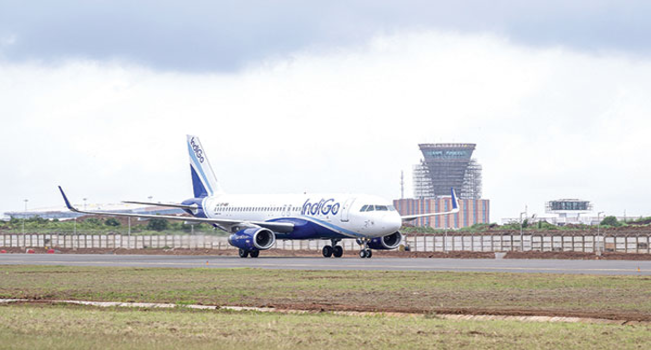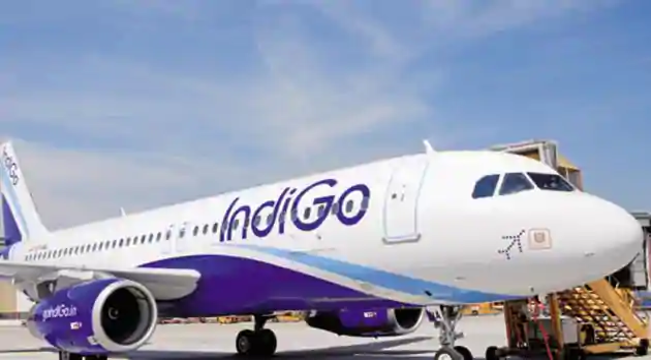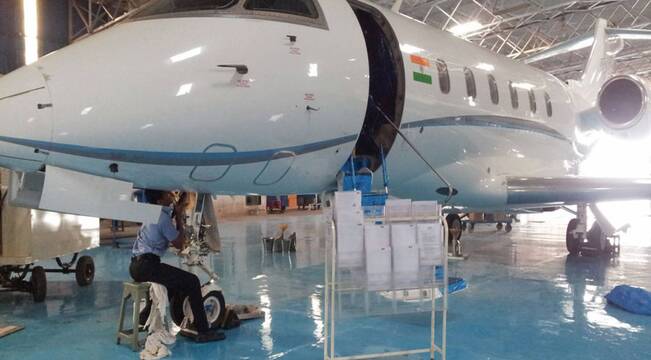Deepak Rajawat, Chief Commercial Officer, Vistara, says the airline is very strongly positioned in the market, especially with more wide-body aircraft joining its fleet successively.
New Delhi,September 23,2022: Deepak Rajawat is currently Chief Commercial Officer, Vistara and has been with the airline since its inception. Rajawat handles a wide portfolio of Vistara’s strategic and commercial functions. Before being appointed as Chief Commercial Officer, he was Divisional Vice President & Head of Corporate Planning at Vistara. He is a seasoned finance professional with over 17 years of experience.
The Indian market is dominated by Low-Cost Carriers; what are the opportunities and challenges for a Full-Service Carrier like Vistara?
India’s potential as a growing aviation market is immense, and we believe there are opportunities for all players in the industry. Vistara fills somewhat of a void in the market as a modern, Full-Service Carrier (FSC) offering the best of Indian hospitality and world-class standards. With more spacious cabins, less density of seats, enhanced comfort, gourmet food and a slew of other services, an increasing number of travellers continue to prefer full-service carriers. According to the reports published in mobilityoutlook.com
Specifically, in the context of long-haul international operations, FSC model has been historically successful. With increased customer preference for non-stop direct connectivity, Vistara is very strongly positioned in the market, especially with more wide-body aircraft joining our fleet successively.
Has this reflected in your market share?
The fact that Vistara has captured the second position in the Indian aviation market with a 10.4% market share in July 2022 is a testament to our growing popularity.
India is a highly price-sensitive market. While we are observing a growing preference for premium cabins, especially on metro routes, the story is not the same across the network. We are addressing this by deploying our all-economy aircraft, which are a fraction of our current fleet but help us to perform well on certain domestic routes. The challenge of high costs with rising fuel prices, high taxes and the falling value of the rupee against the dollar puts pressure on the airlines’ bottom line. To tackle this, we control our non-customer facing expenses and constantly try to make our cost structure leaner through innovative approaches.
What are the emerging trends in demand for air travel in the Indian market?
Consumer behaviour and the very nature of travel have undergone a significant change since the onset of the pandemic. Safety and hygiene are now key considerations for customers when choosing their carrier, and therefore airlines are going the extra mile in strengthening their processes to rebuild passenger confidence. There has also been rapid adoption of touchless and paperless technologies while travelling, and the industry has effectively accelerated its digital transformation process.
Today, people are increasingly opting for online, self-service tools for end-to-end transactions, including booking ancillary services, etc. We also noticed a substantial increase in customers checking in digitally since the pandemic started, making ground operations significantly efficient for airlines and customers alike.
There has also been a noticeable preference for non-stop flights to avoid any transit points, especially on long-haul routes, to minimise the risk of contracting the virus. Most of these trends that have emerged in the past few years, especially during the pandemic, have gained immense prominence and will continue to remain influential.
Can you provide some insights on your international operations and key customer segments?
Vistara is committed to expanding its global network and strategically identifying the right opportunities. Currently, we are operating to/from 10 international destinations – London (Heathrow), Frankfurt, Paris, Singapore, Dubai, Male, Bangkok, Dhaka, Kathmandu, and Jeddah. We will operate daily flights between Mumbai and Abu Dhabi starting October 1, 2022.
Additionally, we have scaled up our frequency to some major international destinations, including Singapore, London, Bangkok, Dubai, Kathmandu, and Dhaka, to seven times a week. We are also increasing frequency to/from Frankfurt and Paris by more than 100%, starting October 30, 2022, as we gear up to receive our third Boeing 787-9 Dreamliner aircraft, which has been leased recently. Vistara also offers a wider global network with connections through its interline and codeshare partners.
Vistara offers distinguished service offerings to its flyers on international routes, which include Forest Essentials amenity kits, freshly brewed Starbucks coffee, a specially curated bar menu, inflight Wi-Fi internet connectivity, etc., which modern-day travellers have widely appreciated. Our customer base on international routes comprises leisure and corporate travellers, who are not only looking to travel from one point to the other but also want a truly world-class flying experience, and Vistara is very well positioned to cater to that segment.
What are the initiatives to provide a touchless experience for customers?
We have taken several measures to ensure customers’ safe and seamless flying experience across all critical touchpoints. Vistara is the first airline to have introduced touchless/paperless boarding at select Indian airports two years ago. Other technologies like Kiosk check-in (Scan-N-Fly), e-boarding passes, E-bag tags and automated baggage drop, etc. are all touchless solutions that have helped minimise contact and make travel a safe experience for customers.
Onboard our A320neo aircraft, we offer touchless in-flight entertainment through Vistara World, enabling customers to enjoy their favourite movies, TV series, news, etc., on their personal electronic devices.
Vistara, in many ways, has been the pioneer of touchless travel and technology in the Indian aviation industry. This has been instrumental in cautiously catering to our customers during the pandemic and regaining their confidence in flying again.
Can you provide some insights on your international operations and key customer segments?
Vistara is committed to expanding its global network and strategically identifying the right opportunities. Currently, we are operating to/from 10 international destinations – London (Heathrow), Frankfurt, Paris, Singapore, Dubai, Male, Bangkok, Dhaka, Kathmandu, and Jeddah. We will operate daily flights between Mumbai and Abu Dhabi starting October 1, 2022.
Additionally, we have scaled up our frequency to some major international destinations, including Singapore, London, Bangkok, Dubai, Kathmandu, and Dhaka, to seven times a week. We are also increasing frequency to/from Frankfurt and Paris by more than 100%, starting October 30, 2022, as we gear up to receive our third Boeing 787-9 Dreamliner aircraft, which has been leased recently. Vistara also offers a wider global network with connections through its interline and codeshare partners.
Vistara offers distinguished service offerings to its flyers on international routes, which include Forest Essentials amenity kits, freshly brewed Starbucks coffee, a specially curated bar menu, inflight Wi-Fi internet connectivity, etc., which modern-day travellers have widely appreciated. Our customer base on international routes comprises leisure and corporate travellers, who are not only looking to travel from one point to the other but also want a truly world-class flying experience, and Vistara is very well positioned to cater to that segment.
Can you tell us about the staff strength, flight schedules and aircraft types?
Vistara connects 30 domestic and ten international destinations with a fleet of 54 aircraft, including 42 Airbus A320, five Airbus A321neo, five Boeing 737-800NG and two Boeing 787-9 Dreamliner aircraft. We will be starting services between Jaipur and Mumbai from September 30 2022. The operations are managed and run by close to 5,000 employees. We are on course to ramp up our fleet to strengthen our network globally, and we expect to take the number to nearly 70 aircraft by 2023.

































